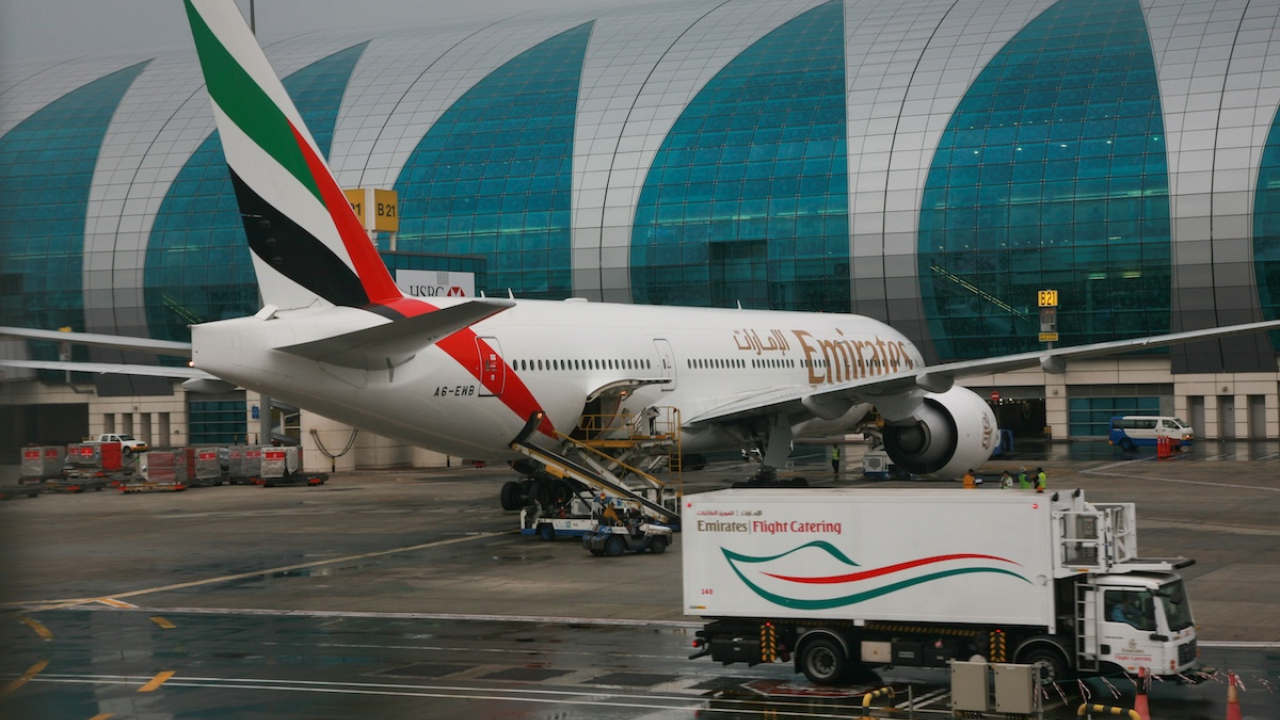How Felix made a low-cost

Felix Arabia, the Ancient Romans called it. The southern fringe of the Arabian Peninsula was called ‘happy’ or ‘fortunate’ because, although little was known of it, it was already renowned as a source of precious substances – notably incense.
Today, that southern fringe is effectively split in two, with one side of the border arguably much happier than the other.
The southeast corner of the peninsula is modern-day Oman. Regarded as one of the most stable and quietly prosperous nations in the Arab world, it has compensated for relatively little oil beneath its territory with a careful, steady policy of economic expansion.
To the southwest is Yemen, which has received a less fortunate hand of cards in the game of nations. Like Oman, it has relatively small oil and gas reserves – and these are now in rapid decline. Unlike Oman, it has a vigorously independent tribal society that has periodically led to unrest with the central government in the capital, Sana’a.
It also suffered from its sympathies with Iraq during the First Gulf War in 1991, when Saudi Arabia, angered by Yemen’s stance, cut its financial aid to Sana’a and expelled more than 800,000 expatriate Yemeni workers whose remittances had been an important source of national income. Yemen today remains the poorest nation on the Arabian Peninsula.
It was partly in an attempt to improve the economy that Felix Airways materialised.
“The idea of Felix Airways was to open new domestic destinations and efficiently serve the Yemeni public – both business travellers and tourists,” explained Mohammed Al-Arrasha, Felix’s CEO. It was intended that the new airline should support the development of Yemen’s transport infrastructure.
Given the fact that it is the country’s first privately-owned airline, it is perhaps ironic that it was the brainchild of the Yemen Government and the national carrier, Yemenia, which is itself owned 49 per cent by
Yemenia, with its fleet of Boeing 737-800s, Airbus A310s and A330-200s, wanted to expand its international operations with these larger aircraft. Creating Felix was intended to introduce a new carrier that could take over Yemenia’s domestic services and expand both national and regional services using smaller, more flexible aircraft. Furthermore, it was to be a low-cost carrier (LCC).
Was positioning Felix as an LCC a risk? Arab passengers are known to regard budget airlines with some suspicion, as though their decision not to charge traditional fare levels means that in some way they are not ‘proper airlines’.
“It’s true the LCC concept is not within the Arab culture,” admitted Al-Arrasha. While the LCC template has been used, however, Felix regards itself in other ways as a more ‘traditional’ regional operator – it serves in-flight catering on all journeys of more than an hour, for example. Despite this, an average ticket on Felix is just $60 for an hour-long flight.
While it was always planned that Felix and Yemenis would act as mutual feeders for the other’s services, Felix was set up as a completely separate carrier. Yemenia retains 25 per cent of Felix’s shares but the young airline retains full independence to determine its development, including the power to make agreements with foreign airlines if such alliances aid Felix and its aim of boosting the Yemeni economy.
The major shareholder is the Islamic Corporation of the Development of the Private Sector (ICD) whose shareholders are the Islamic Development Bank, 45 Islamic nations and five public financial institutions from these countries. The ICD’s role is to funnel finance to the private sector using the principles of Shari’a.
Felix’s launch in October 2008 could hardly have been worse-timed, coinciding as it did with the onset of the global recession. Tourism to Yemen dropped as holidays were discarded from people’s plans.
However, even a worldwide economic crisis can have advantages, said the CEO. The Bombardier CRJ is a relatively rare bird in the
“For the first year of operations, we contracted with Brookfield Aviation, which provided us with line captains, first officers and line trainers. Currently we have six pilots (all expatriate) and five first officers. All the first officers are local and were trained by Brookfield’s line trainers.” Of the total workforce of just under 200, 80 per cent are Yemenis.
Nevertheless, it has made an encouraging start. It carried almost 263,000 passengers in 2009, split around 60 per cent leisure travellers and 40 per cent business. It now serves nine domestic cities as well as five regional destinations – Salalah (Oman), Djibouti, Sharjah (UAE), Dammam and Medina (Saudi Arabia).
In the second or third quarter of this year, Felix intends to create a new hub at Dammam, which will serve 10 destinations, including Beirut, Mashad (Iran) and Alexandria. It also aims to start a small number of international routes from the Yemeni regional airports of Riyan and Hodeidah, going as far south as Zanzibar in Tanzania.
This expansion of the network will require an increase in the fleet. Joining the existing pairs of Bombardier 50-seat CRJ200s and 70-seat CRJ700s in late 2010 or early 2011 will be two of the larger 86-seat CRJ900s.
The biggest challenges to Felix? Within Yemen, getting the LCC concept and the private sector business model across to a domestic audience. Externally, the main challenge has been rivalry from foreign LCCs operating into Felix’s domestic marketplace, which is both small and has low yields, said Al-Arrasha.
In terms of passenger numbers, the domestic market has provided more growth so far, he added. However, greater yields are to be found on international sectors, so Felix will continue to explore and expand in both market segments.
Stay up to date
Subscribe to the free Times Aerospace newsletter and receive the latest content every week. We'll never share your email address.

